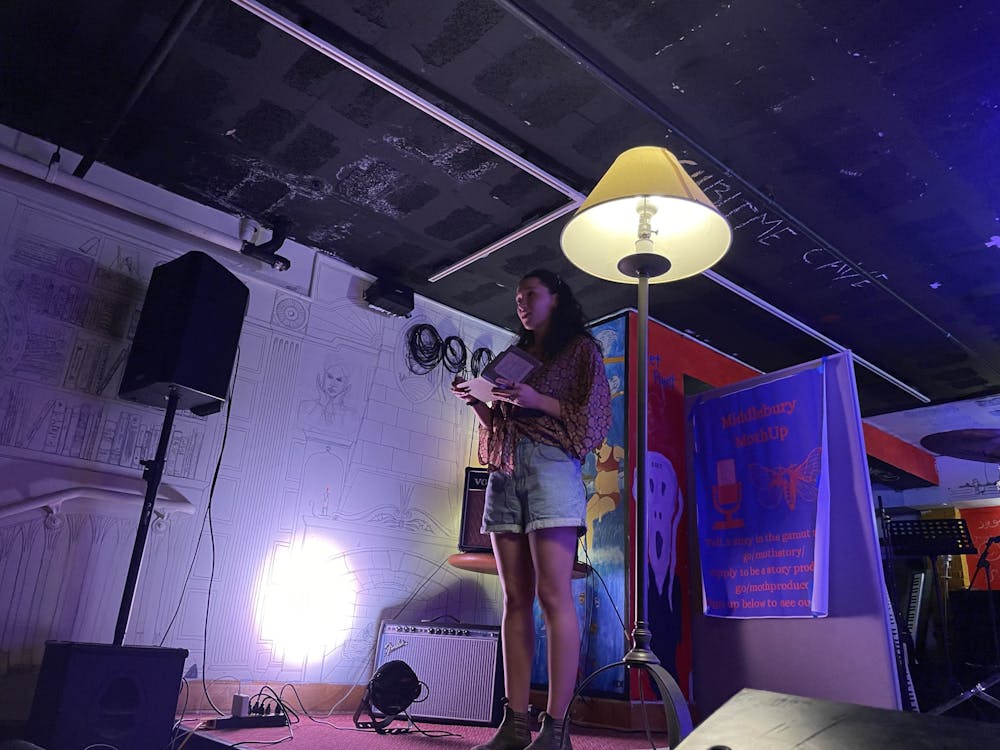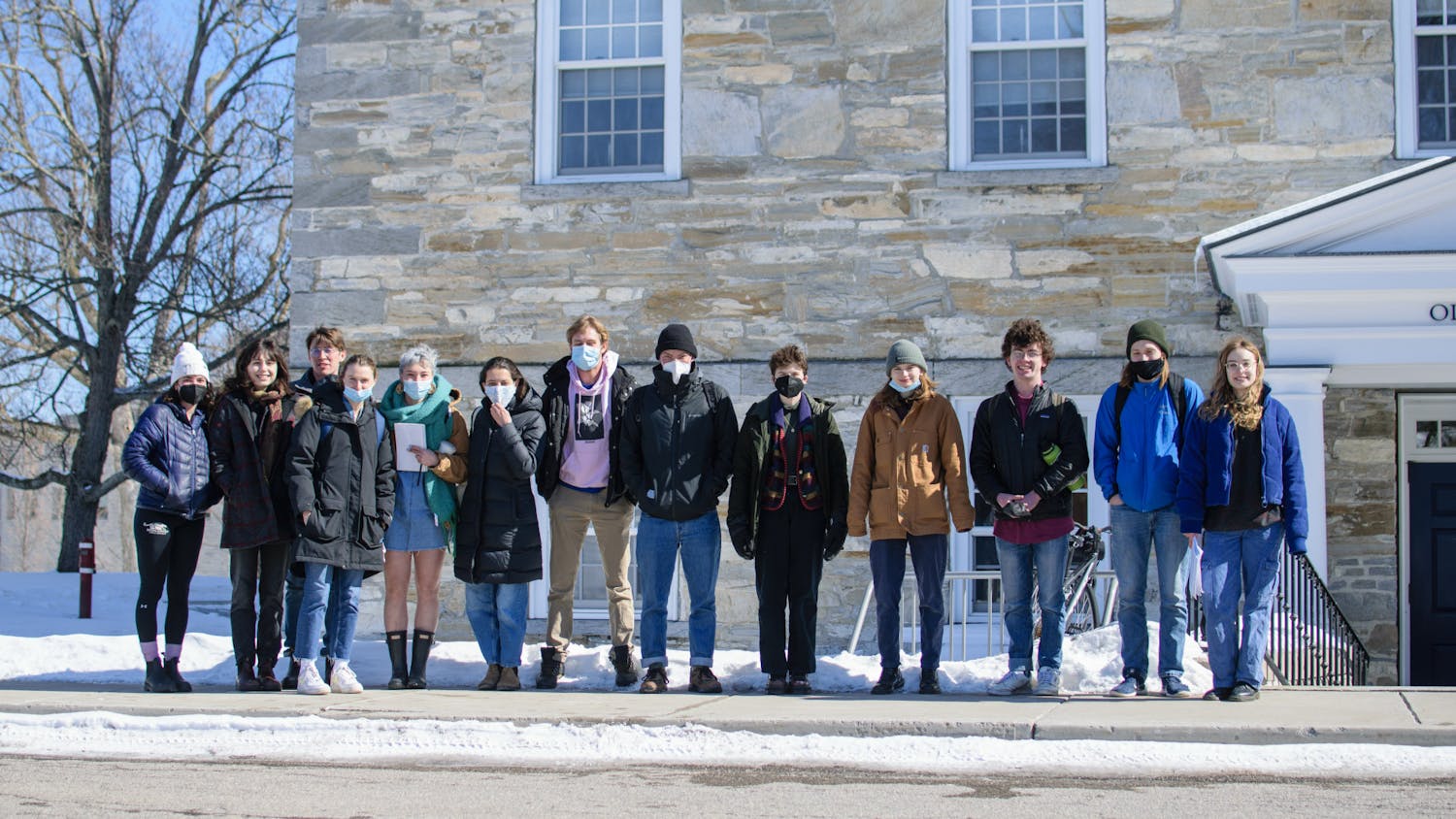On March 9, the live Moth-Up storytelling event brought an intimacy to Middlebury not often experienced in the whirlwind of the academic week. Hosted in the Gamut Room, where the audience had to arrange themselves Tetris-style to fit, the event kicked off when the lights were dimmed and a spotlight shone on the speaker, creating a personal link between audience member and storyteller. No microphones were present; voices alone were used to fill the space.
Moth-Up operates on three rules: stories must be true, they must be unscripted and they must be around 10 minutes long. The theme linking the stories together this time was “Meta Moth” — telling a story within a story — but since the Moth-Up rules necessitate truthful, personal stories, this was difficult. Meta stories are often explored in postmodern literature and are characterized by unreliable narration and self-reflexivity, most often exemplified in fictional stories.
To kick things off, Cesca Medeiros ’25 presented a heartwarming story about her family formation. Her family consists of her father, an NYC-art-school-dropout who became a real estate agent in Miami, and a black lab adopted from a grilled cheese restaurant. One time, an errant swipe of her dog’s paw led to an eyelid hanging off her face and a joke about needing plastic surgery in Miami. The story ended with her dog curled around her as she recovered from the incident. The speech was complemented by imitations of her father and high school teacher at tense moments in the narrative. The story felt like a vessel to coalesce humor, intelligent observation and personal reflection — no one piece was overwhelming, and each component was necessary to the naturalness of the story.
Next up was Trey Atkins ’22.5, sporting all-beige attire, with a straight posture and gestures to impart a nonverbal authority to the story. He led listeners through the last day at his high school, citing stimuli that brought back specific memories: parking in the same spot as he did throughout high school; two spaces to the right of a particular rock; the smell of goose poop from the grass. A wall of athletic plaques became a story about running heel to toe with his toes pointed out until the athletic trainer intervened late in high school; the screen which projected his morning announcements became voiced by a friend saying “Gooood morning Chase High.” Through personal details he found a universality of experience, revealing that while it may be easy to drown in nostalgia, the experiences we have are not simply over; our past transcends time to shape the present.
Max Bluhm ’23.5 discussed reconnecting with the college after Covid-19 removed him from his on-campus college experience. Though he was anxious about how to return to Middlebury after not having a social support system, Bluhm revived friendships upon returning to campus. He reminisced about a chaotic weekend on Mountain Club’s leader program, where a well-intentioned act of trying to become accustomed to Vermont winter turned into an episode of hypothermia, leading him to bond with others. The story highlighted how social connections can be made from any experience.
Celeste Levy ’22 finished off the evening by discussing their favorite Christmas tradition: falling asleep on the carpet with their grandmother while she read a 1950’s Welsh poem. After not traveling home for the holidays this year, they discussed spending time in a barn in rural Vermont. Levy’s confidence in the story was palpable; moments of pause were not awkward, but rather, built anticipation. The story concluded with a modern callback to their childhood tradition, with Levy recounting their partner falling asleep in their lap. Then, a section of that same Welsh poem was read aloud to the audience.
Between speakers, Moth-Up organizers read anonymous audience responses to the prompt: “A story your parents would not like to hear.” Examples included, “igloo sex on Battell Beach” and “taking acid while hiking, getting lost and hallucinating a guide.” These stories filled in every spare minute, providing a complete hour of entertainment, although at times it would have been nice to have a moment of silence between sets to reflect on the stories.
The speakers’ success did not stem from their mere vulnerability. Each speaker told a story that touched on palatable truths most of us ignore in daily life, but discreetly shape our identity. Maybe this Moth-Up’s stories were not “meta” on their own — perhaps, they required an audience to project onto the speaker, creating innumerable truths.




